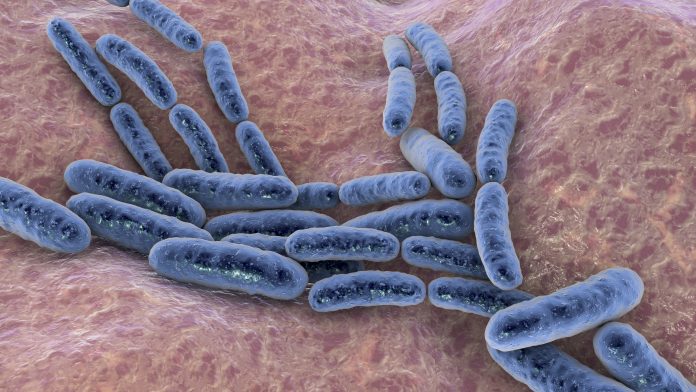
Probiotic bacteria may enhance anti-cancer activities of the breast cancer drug tamoxifen and other endocrine-targeted therapies, which could help improve the treatment of estrogen receptive positive (ER+) breast cancer, suggests a new study presented by Wake Forest University researchers at ENDO 2022, the Endocrine Society’s annual meeting in Atlanta.
The microbiome is usually associated with flora of the gut. But in 2014, researchers discovered that breast tissue itself has its own bacterial microbiome population. Four years later in 2018, a team of researchers from Wake Forest performed a study showing that diet can affect the breast microbiome, just like the gut, leading them to consider if drugs or medications that affect gut microbiome might also affect the breast microbiome.
They chose to concentrate on oral endocrine therapies, such as tamoxifen, which are used to prevent ER+ breast cancer recurrence. Other endocrine-targeted therapies studied included aromatase inhibitors and Faslodex.
“We wanted to see whether or not oral administration of tamoxifen and similar drugs could shift the breast microbiome,” explained senior author Katherine L Cook, PhD, associate professor in the department of surgery at Wake Forest University School of Medicine. In this study, she and her colleagues showed that tamoxifen increased breast specific Lactobacillus in preclinical models.
Lactobacillus is thought to be a probiotic Gram-positive bacteria. It also has been shown—at least in the gut—to have anti-inflammatory properties. To explore the functional relevance of lactobacillus within breast tissue, the team used mice genetically predisposed to develop breast cancer, known as Western diet-fed MMTV-PyMT mice. Over the course of their lifetime, these mice randomly develop breast tumors.
When the mice received nipple injections of either saline control or Lactobacillus bacteria into their breast tissue, the Lactobacillus-injected mice had fewer tumors and a higher tumor-free survival compared to controls. “That indicates a potential role that in the breast, Lactobacillus could be anti-tumorigenic, and stop tumor from developing in the first place,” said Cook. The team also noted a lower proliferative index in the treated mice as measured by a reduced levels of the protein Ki67, a well-known marker of tumor proliferation.
In the second part of the study, researchers looked at a large animal model in which the ovaries were removed to simulate menopause and subjects were treated with tamoxifen for 2.5 years. The researchers found they, too, had high levels of Lactobacillus in breast tissue.
In the third part of the study, the researchers examined tissue from ER+ breast tumors from women who had been treated in the neoadjuvant setting with one or two endocrine-targeted therapies, aromatase inhibitors, or Faslodex. After their breast cancer surgery, the tumors were analyzed. “We found that the number of Gram-positive bacteria within the tumor correlated with whether or not the tumors proliferated,” said Cook. Women with high levels of Gram-positive bacteria within their tumors had lower levels of cancer cell growth. These results suggest oral endocrine-targeting therapies may enrich breast Gram-positive bacteria, increase anti-inflammatory macrophage localization, and elevate bacterial-processed metabolites that decrease proliferation, which may reduce mammary cancer risk.
In future studies, Cook’s lab will study the interconnectivity between the gut and the breast microbiome. “We want to see if oral probiotics that contain Lactobacillus strains also increase the breast-specific levels,” she said. “It would be very interesting see if we could find dietary interventions, possibly oral Lactobacillus, which increase breast Lactobacillus.”













